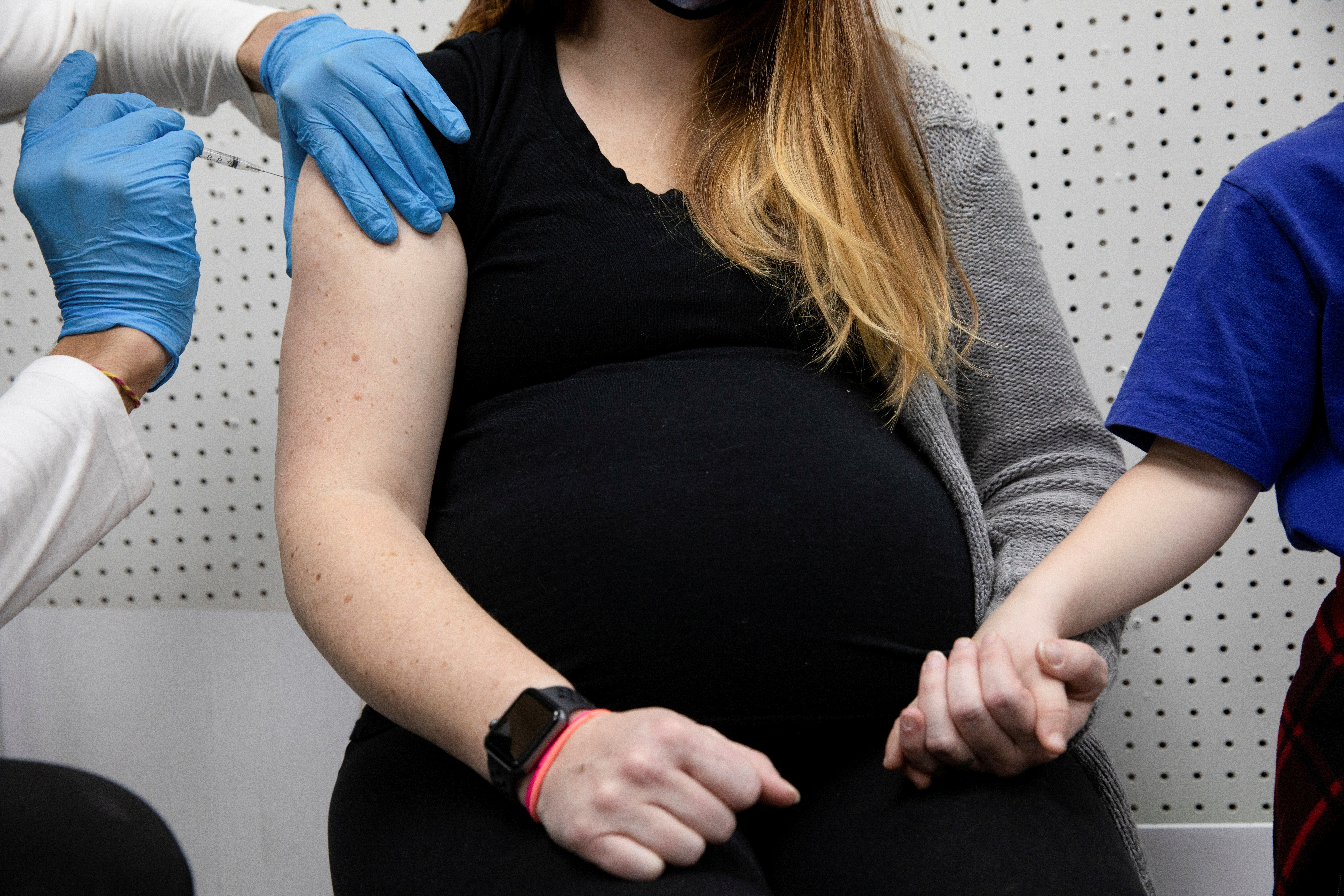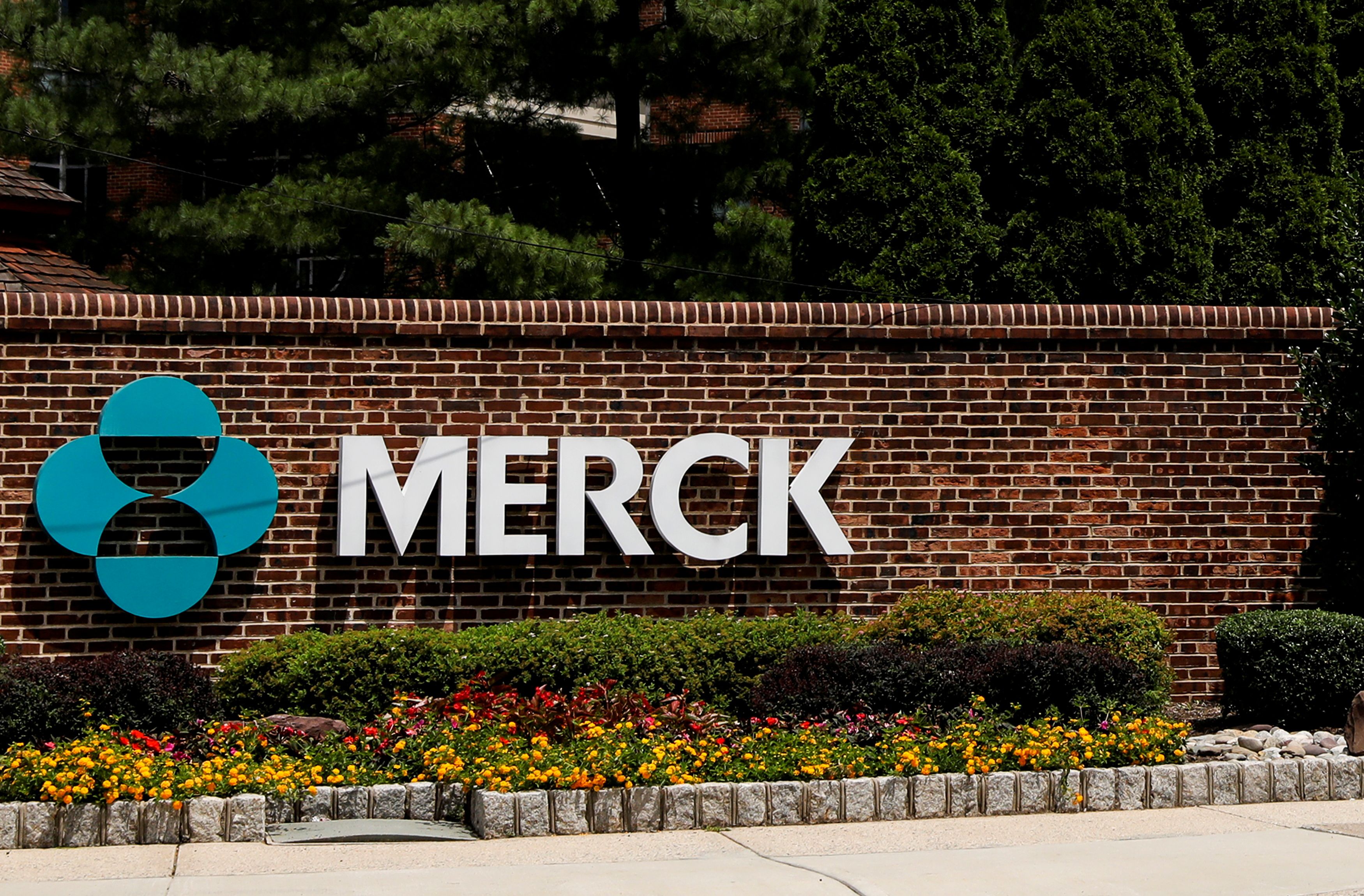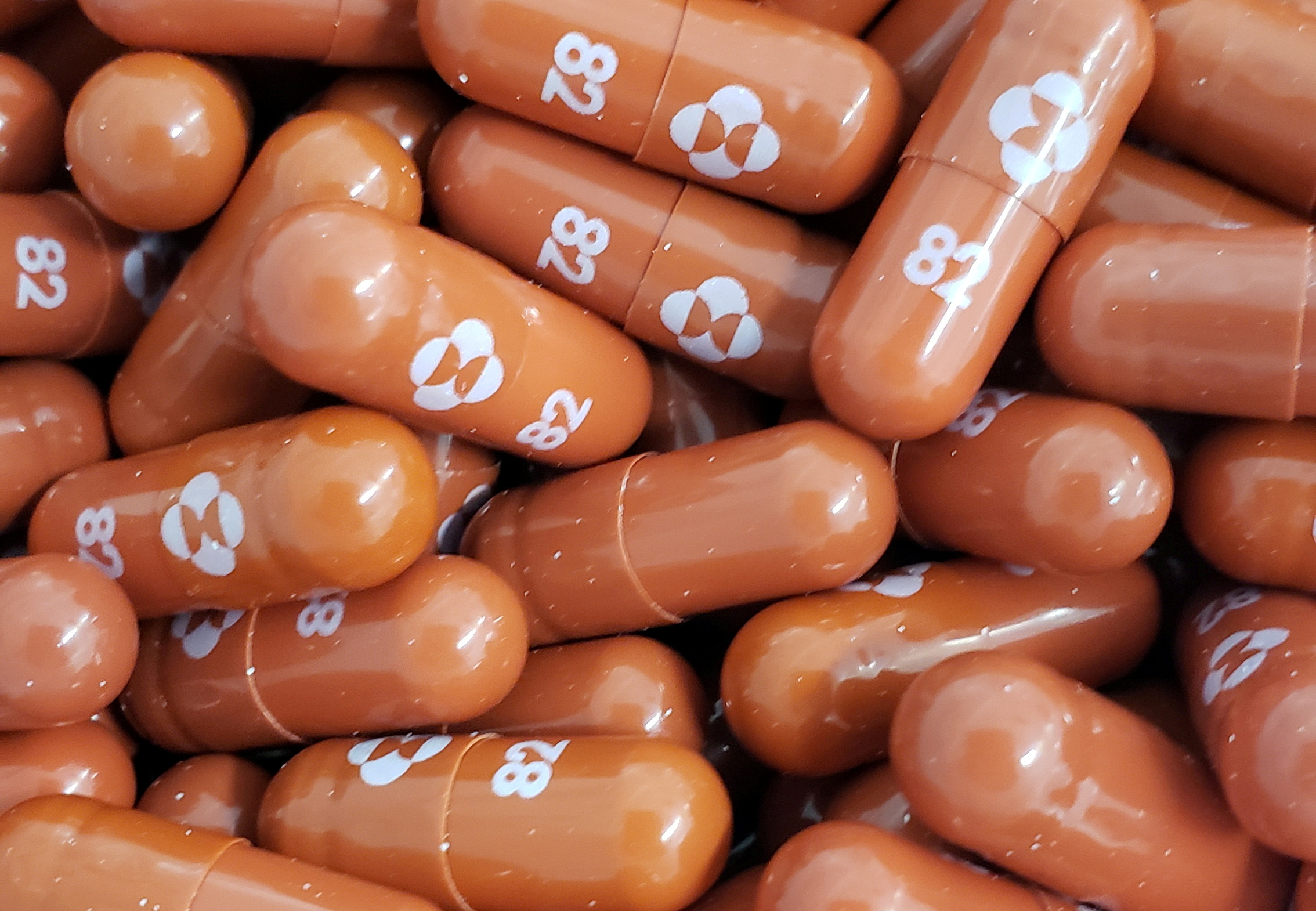- Joined
- Sep 28, 2011
- Messages
- 4,133
- Points
- 113
This Merck antiviral drug molnupiravir is very interesting and will be another weapon in the arsenal against COVID19 if approved.Delta increases COVID-19 risks for pregnant women
Pfizer/BioNTech vaccine antibodies gone by 7 months for many
www.reuters.com

Oct 1 (Reuters) - The following is a summary of some recent studies on COVID-19. They include research that warrants further study to corroborate the findings and that have yet to be certified by peer review.
Delta variant increases risks for pregnant women
Compared to coronavirus cases earlier in the pandemic, infections with the Delta variant lead to worse outcomes for unvaccinated pregnant women, new data suggest. Doctors studied 1,515 pregnant women with COVID-19 who received care from a large public health system in Dallas from May 2020 through Sept. 4, 2021. Overall, 82 women - 81 of whom were unvaccinated - developed severe illness, including 10 who needed ventilators and two who died. The proportion of severe or critical cases among pregnant women was around 5% until early 2021, and were "largely nonexistent" in February and most of March 2021, the researchers said in a statement. In late summer, during the peak of the surge of the Delta variant, the proportion of pregnant COVID-19 patients requiring hospitalization jumped to 10% to 15%, they reported in the American Journal of Obstetrics and Gynecology. Pregnant women face greater risks for complications with any type of severe respiratory infection, so these findings of the higher risk from the Delta variant further emphasize the need for them to get vaccinated for COVID-19, study leader Dr. Emily Adhikari of the University of Texas Southwestern Medical Center said in a statement. On Wednesday, the U.S. Centers for Disease Control and Prevention called for "urgent action" to increase COVID-19 vaccination among people who are pregnant, recently pregnant, including those who are breastfeeding, or who might become pregnant in the future, saying "the benefits of vaccination outweigh known or potential risks."
Pfizer/BioNTech vaccine antibodies disappear in many by 7 months
Six months after receiving the second dose of the two-shot vaccine from Pfizer Inc (PFE.N) and BioNTech SE , many recipients no longer have vaccine-induced antibodies that can immediately neutralize worrisome variants of the coronavirus, a new study suggests. Researchers analyzed blood samples from 46 healthy, mostly young or middle-aged adults after receipt of the two doses and again six months after the second dose. "Our study shows vaccination with the Pfizer-BioNtech vaccine induces high levels of neutralizing antibodies against the original vaccine strain, but these levels drop by nearly 10-fold by seven months" after the initial dose, Bali Pulendran of Stanford University and Mehul Suthar of Emory University said by email. In roughly half of all subjects, neutralizing antibodies that can block infection against coronavirus variants such as Delta, Beta, and Mu were undetectable at six months after the second dose, their team reported on Thursday on bioRxiv ahead of peer review. Neutralizing antibodies are not the immune system's only defense against the virus. Still, they "are critically important in protecting against SARS-CoV-2 infection," said Pulendran and Suthar. "These findings suggest that administering a booster dose at around 6 to 7 months following the initial immunization will likely enhance protection against SARS-CoV-2 and its variants."
Experimental Merck pill halves hospitalizations, deaths
Merck & Co's (MRK.N) experimental oral antiviral drug for COVID-19, molnupiravir, reduced by around 50% the chance of hospitalization or death for patients with mild or moderate infections who had risk factors for severe disease, according to interim clinical trial results announced by the company on Friday. A planned interim analysis of 775 patients in Merck's study found that 7.3% of those given molnupiravir twice a day for five days were either hospitalized or had died by 29 days after treatment, compared with 14.1% of placebo patients. There were no deaths among those given molnupiravir but eight in the placebo group. Due to the positive results, the Phase III trial is being stopped early at the recommendation of outside monitors. "An oral antiviral that can impact hospitalization risk to such a degree would be game changing," said Amesh Adalja, from Johns Hopkins Center for Health Security, who was not involved in the study. Merck and partner Ridgeback Biotherapeutics plan to seek U.S. emergency use authorization for the pill as soon as possible, and to submit applications to regulatory agencies worldwide. If authorized, molnupiravir, which is designed to introduce errors into the genetic code of the virus, would be the first oral antiviral medication for COVID-19.
Merck pill seen as 'huge advance,' raises hope of preventing COVID-19 deaths
By Deena Beasley and Carl O'donnellMerck pill raises hope of preventing COVID death
Oct 1 (Reuters) - An experimental antiviral pill developed by Merck & Co (MRK.N) could halve the chances of dying or being hospitalized for those most at risk of contracting severe COVID-19, according to data that experts hailed as a potential breakthrough in how the virus is treated.
If it gets authorization, molnupiravir, which is designed to introduce errors into the genetic code of the virus, would be the first oral antiviral medication for COVID-19.
Merck and partner Ridgeback Biotherapeutics said they plan to seek U.S. emergency use authorization for the pill as soon as possible and to make regulatory applications worldwide.
"An oral antiviral that can impact hospitalization risk to such a degree would be game changing," said Amesh Adalja, senior scholar at the Johns Hopkins Center for Health Security.
Current treatment options include Gilead Sciences Inc's (GILD.O) infused antiviral remdesivir and generic steroid dexamethasone, both of which are generally only given once a patient has already been hospitalized.
"This is going to change the dialogue around how to manage COVID-19," Merck Chief Executive Robert Davis told Reuters.
Existing treatments are "cumbersome and logistically challenging to administer. A simple oral pill would be the opposite of that," Adalja added.
The results from the Phase III trial, which sent Merck shares up more than 9%, were so strong that the study is being stopped early at the recommendation of outside monitors.
Shares of Atea Pharmaceuticals Inc (AVIR.O), which is developing a similar COVID-19 treatment, were up more than 21% on the news.
Shares of COVID-19 vaccine makers Moderna Inc (MRNA.O) were off more than 10%, while Pfizer (PFE.N) was down less than 1%.
Jefferies analyst Michael Yee said investors believe "people will be less afraid of COVID and less inclined to get vaccines if there is a simple pill that can treat COVID."
Pfizer and Swiss drugmaker Roche Holding AG (ROG.S) are also racing to develop an easy-to-administer antiviral pill for COVID-19. For now, only antibody cocktails that have to be given intravenously are approved for non-hospitalized patients.
White House COVID-19 response coordinator Jeff Zients said on Friday that molnupiravir is "a potential additional tool... to protect people from the worst outcomes of COVID," but added that vaccination "remains far and away, our best tool against COVID-19."
A planned interim analysis of 775 patients in Merck's study looked at hospitalizations or deaths among people at risk for severe disease. It found that 7.3% of those given molnupiravir twice a day for five days were hospitalized and none had died by 29 days after treatment. That compared with a hospitalization rate of 14.1% for placebo patients. There were also eight deaths in the placebo group.



1/2
An experimental COVID-19 treatment pill called molnupiravir being developed by Merck & Co Inc and Ridgeback Biotherapeutics LP, is seen in this undated handout photo released by Merck & Co Inc and obtained by Reuters May 17, 2021. Merck & Co Inc/Handout via REUTERS
Read More
"Antiviral treatments that can be taken at home to keep people with COVID-19 out of the hospital are critically needed,” Wendy Holman, Ridgeback's CEO, said in a statement.
'A HUGE ADVANCE'
Scientists welcomed the potential new treatment to help prevent serious illness from the virus, which has killed almost 5 million people around the world, 700,000 in the United States.
“A safe, affordable, and effective oral antiviral would be a huge advance in the fight against COVID," said Peter Horby, a professor of emerging infectious diseases at the University of Oxford.
The study enrolled patients with laboratory-confirmed mild-to-moderate COVID-19, who had symptoms for no more than five days. All patients had at least one risk factor associated with poor disease outcome, such as obesity or older age.
Drugs in the same class as molnupiravir have been linked to birth defects in animal studies. Merck has said similar studies of molnupiravir – for longer and at higher doses than used in humans – indicate that the drug does not affect mammalian DNA.
Merck said viral sequencing done so far shows molnupiravir is effective against all variants of the coronavirus including the highly transmissible Delta, which has driven the recent worldwide surge in hospitalizations and deaths.
It said rates of adverse events were similar for both molnupiravir and placebo patients, but did not give details.
Merck has said data shows molnupiravir is not capable of inducing genetic changes in human cells, but men enrolled in its trials had to abstain from heterosexual intercourse or agree to use contraception. Women of child-bearing age in the study could be pregnant and also had to use birth control.
The U.S. drugmaker said it expects to produce 10 million courses of the treatment by the end of 2021.
The company has a U.S. government contract to supply 1.7 million courses of molnupiravir at a price of $700 per course.
Davis said Merck has similar agreements with other governments, and is in talks with more. Merck said it plans a tiered pricing approach based on country income criteria.
Merck has also agreed to license the drug to several India-based generic drugmakers, which would be able to supply the treatment to low- and middle-income countries.
Molnupiravir is also being studied in a Phase III trial for preventing infection in people exposed to the coronavirus.
Merck officials said it is unclear how long the FDA review will take, although Dean Li, head of Merck's research labs, said, "they are going to try to work with alacrity on this."
Reporting by Deena Beasley; Additional reporting by Josephine Mason, Editing by Lincoln Feast, Kirsten Donovan, Alexander Smith and Bill Berkrot




